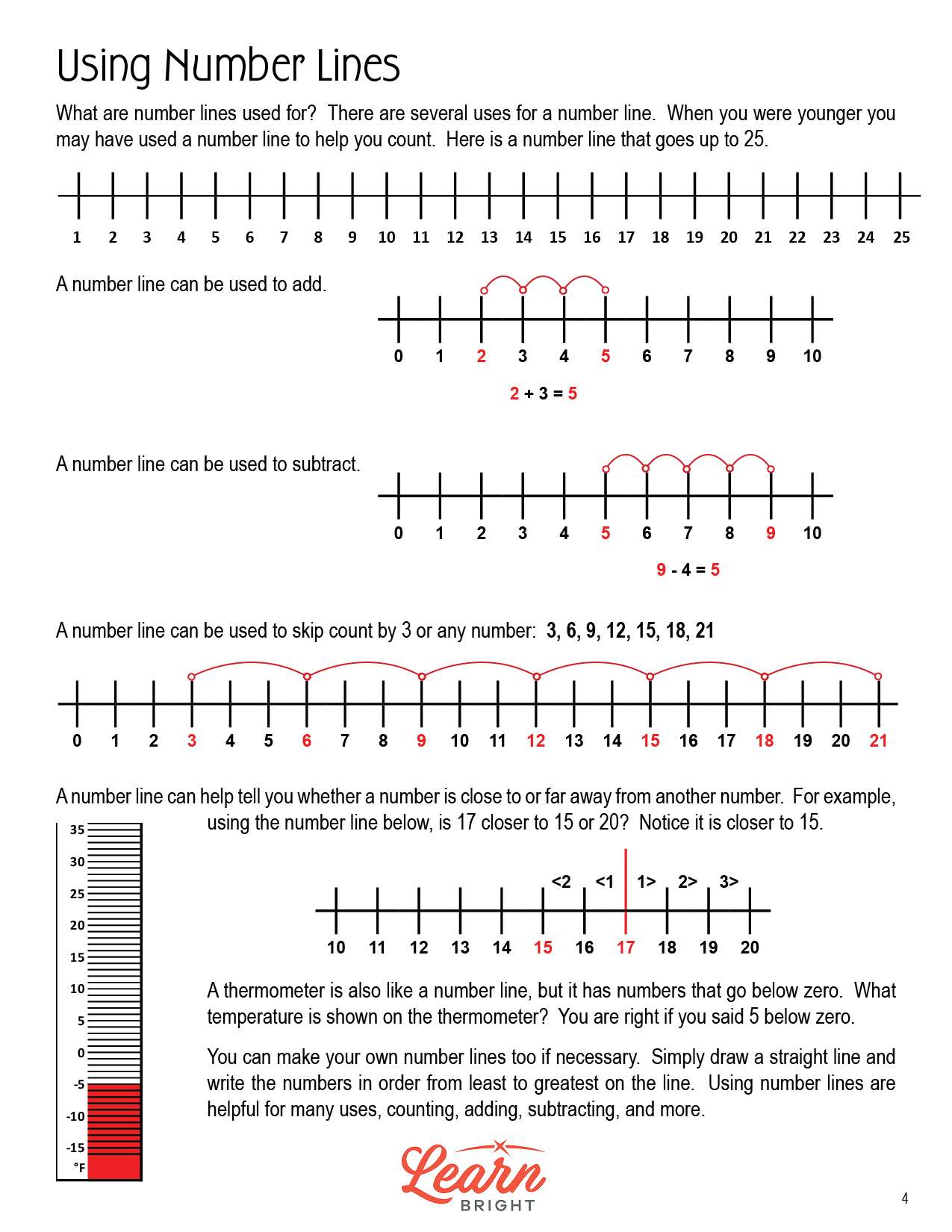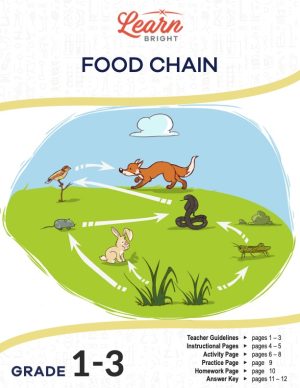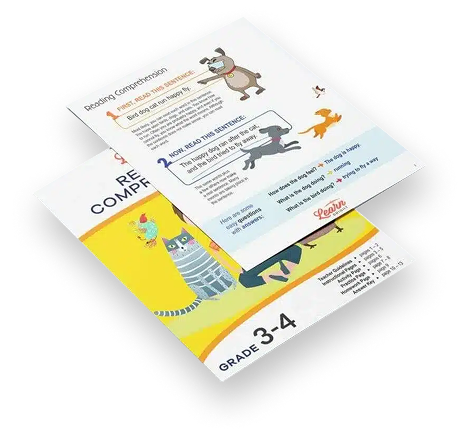Description
What our Number Lines lesson plan includes
Lesson Objectives and Overview: Number Lines teaches students to define and correctly use a number line for adding, subtracting and skip-counting. At the end of the lesson, students will be able to define and correctly use a number line for adding, subtracting, and skip-counting. This lesson is for students in 1st grade and 2nd grade.
Classroom Procedure
Every lesson plan provides you with a classroom procedure page that outlines a step-by-step guide to follow. You do not have to follow the guide exactly. The guide helps you organize the lesson and details when to hand out worksheets. It also lists information in the blue box that you might find useful. You will find the lesson objectives, state standards, and number of class sessions the lesson should take to complete in this area. In addition, it describes the supplies you will need as well as what and how you need to prepare beforehand. The supplies you will need for this lesson include scissors, glue, markers, rulers, strips of paper, and the handouts.
Options for Lesson
Included with this lesson is an “Options for Lesson” section that lists a number of suggestions for activities to add to the lesson or substitutions for the ones already in the lesson. One optional addition to this lesson is to take your students outdoors and have them create a “world record” extremely long number line with the class. You can also have your students create a human number line with each student displaying a number placard, each spaced equidistantly apart. You can then use this human number line to add and subtract numbers and practice skip counting with the class. If you want to add an additional activity to the lesson, you can use the custom-designed number line resource and have your students create their “special” number line. Finally, to add some context to this lesson, you can give your students a brief history of the origin of numbers.
Teacher Notes
The teacher notes page includes a paragraph with additional guidelines and things to think about as you begin to plan your lesson. This page also includes lines that you can use to add your own notes as you’re preparing for this lesson.
NUMBER LINES LESSON PLAN CONTENT PAGES
Number Lines
The Number Lines lesson plan includes two content pages. You can likely count to 10, 100, or even 1,000. We count every day. When someone asks how many of something there are, you count to find the answer. If you wrote down the numbers as you counted something in a row, you would create a number line.
Number lines are straight lines. They can be horizontal, vertical, or go in another direction. We sometimes call vertical numbers number ladders. Most number lines are horizontal and start at zero, but some include very large numbers or numbers below zero.
Number lines are not rulers, so we cannot use them for measuring. However, we can use rulers as number lines. The lesson includes a number that begins at zero and ends at 15. This is just one way to create a number line. Some number lines have very wide or very narrow spaces between the numbers. They can also list numbers in increments of 2, 3, 4, 5, or any other value. The lesson shows a few examples of different kinds of number lines.
No matter what your number line looks like, we have two basic rules for all number lines. First, the lines must be straight and can go in any direction. Second, the numbers increase to the right (or upward) and decrease to the left (or downward).
Using Number Lines
What do we use numbers lines for? Number lines have several different uses. When you’re young, you might use a number line to help you count. We can use number lines to add or subtract, by moving up or down the number line. We can also use them to skip count by any number. Number lines can also help us figure out whether a number is close to or far away from another number.
Thermometers are like number lines with numbers that go below zero. You read a thermometer much like you’d use a number line.
It’s not hard to make your own number line. All you have to do is draw a straight line and write the numbers you want to include in order from least to greatest. You can then use your number line to help you count, add, subtract, and more!
NUMBER LINES LESSON PLAN WORKSHEETS
The Number Lines lesson plan includes three worksheets: an activity worksheet, a practice worksheet, and a homework assignment. You can refer to the guide on the classroom procedure page to determine when to hand out each worksheet.
CREATING NUMBER LINES ACTIVITY WORKSHEET
For the activity worksheet, students will cut out the numbers printed on the worksheet. They will then use these numbers to create five different number lines with specific parameters. They will create four horizontal number lines and one vertical number line. One they’ve created their number lines, they will use them to help with adding and subtracting, skip counting, and more.
SOLVING USING NUMBER LINES PRACTICE WORKSHEET
The practice worksheet asks students to first show how to solve different addition and subtraction problems using number lines. They will also use a number line to answer questions.
NUMBER LINES HOMEWORK ASSIGNMENT
For the homework assignment, students will create number lines using different parameters. For example, they will create a number line using only even numbers and one using only odd numbers. They will also create vertical number lines.
Worksheet Answer Keys
This lesson plan includes answer keys for the practice worksheet and the homework assignment. If you choose to administer the lesson pages to your students via PDF, you will need to save a new file that omits these pages. Otherwise, you can simply print out the applicable pages and keep these as reference for yourself when grading assignments.









